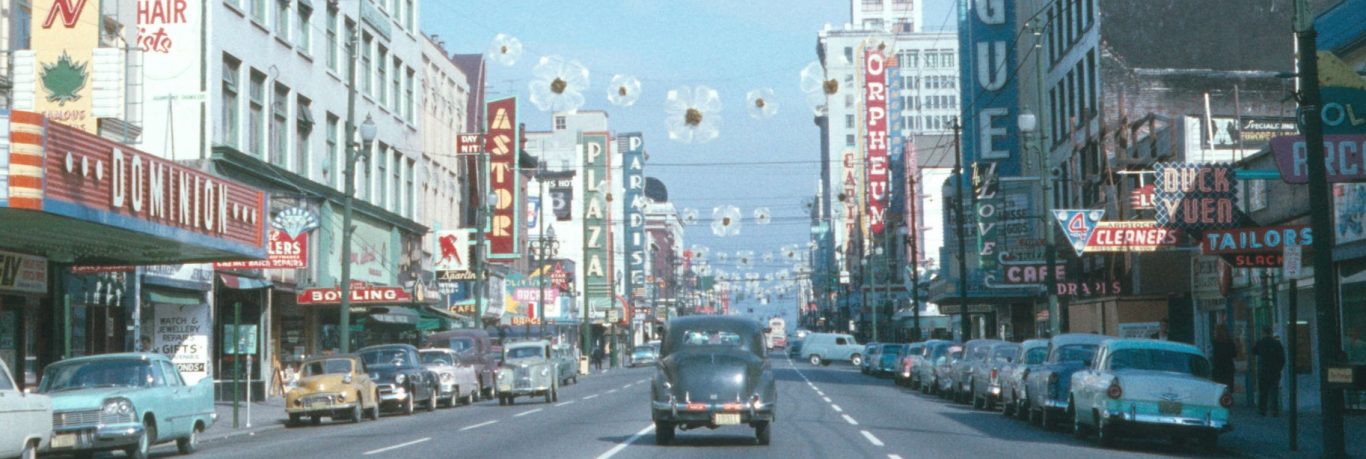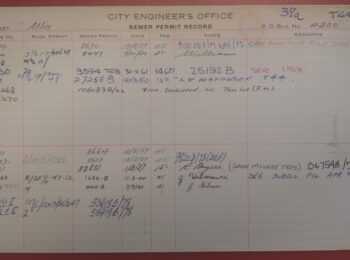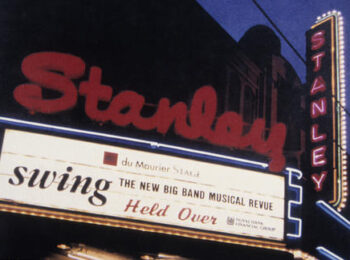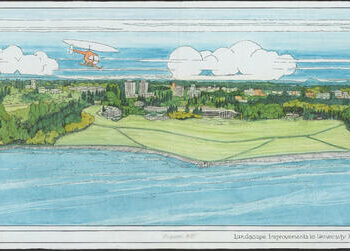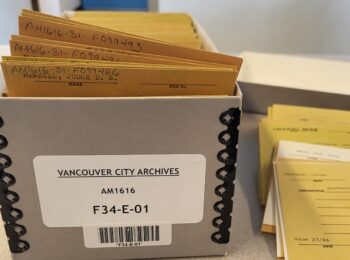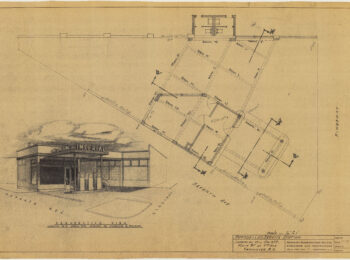Over the past year or so Archives staff have been working on two long-term projects to improve access to one of our most valuable series of municipal records—City Council Meeting Minutes (COV-S31). These minutes document the decisions made by City Council and touch on all aspects of City business: policy and strategic planning, financial management, land administration, and engineering services to name a few. Meetings represented in this series include Regular and Special Council meetings, Standing Committee meetings, Public Hearings, Business License Hearings, and Court of Revision meetings. Each set of minutes consists of the official signed and sealed original minutes of the proceedings and any supporting documents that correspond to agenda items such as reports, presentations, and by-laws.
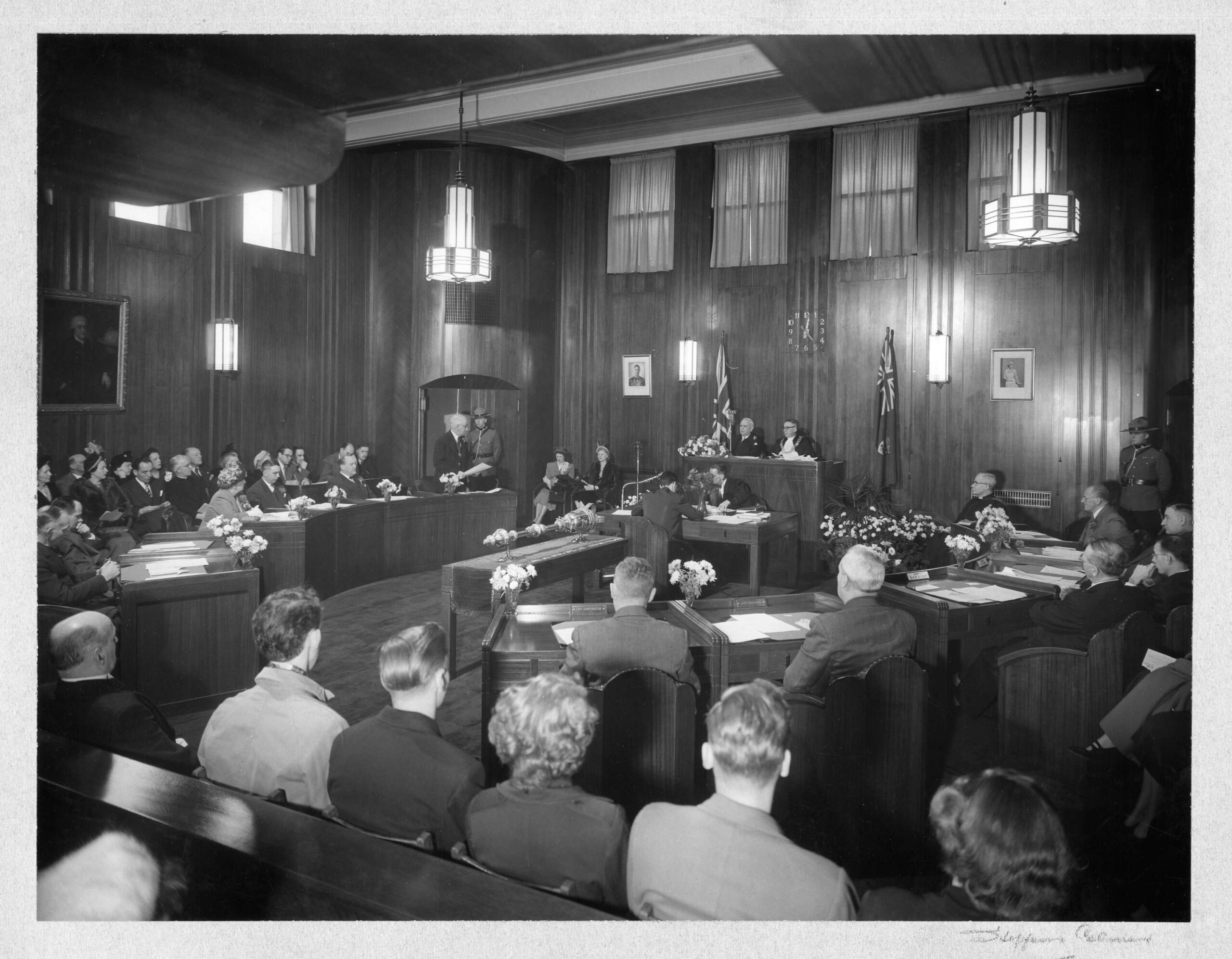
Staff in the City Clerk’s Office (CCO) prepare the agendas for Council meetings (37 of them scheduled for this year alone), provide secretarial services for the meetings and provide advice to the meeting Chair regarding procedural matters. The City’s website gives more information on the CCO’s role and how members of the public can find information and participate in meetings. Early each year, the physical minutes for the preceding year are signed and sealed by the City Clerk and Mayor and are transferred directly to the Archives. We hold all the original Council meeting minutes, starting with the very first meeting in 1886 and continuing all the way to the end of last year.
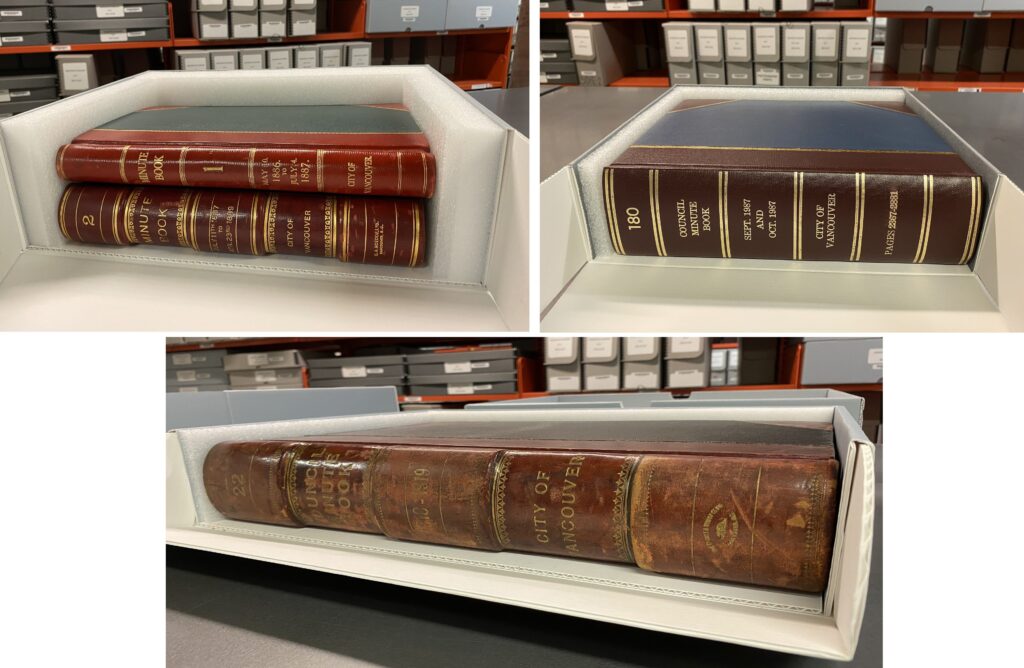
Understanding where and how to access these minutes, and how to find the minutes that answer your question can be confusing and time consuming. We’re working to make that easier. So, let’s start with where you go to access them.
Where to Access Minutes
1886-1959 – Archives’ microfilm only
1960s (most years) – Archives’ database
1970-1980 – Archives’ database
1981 (portion) – Archives’ database
1982-1994 – Archives’ microfilm only
1995-Today – City’s web portal
Council minutes dating 1995 and later are available online through the City’s web portal for agendas, minutes, and decisions. The Archives has also digitized almost two decades worth of minutes from the mid-1960s to early 1980s that can be viewed and downloaded as PDFs from our online database. Otherwise, the remaining years are accessed at the Archives from copies of the records on microfilm.
We’ve had these microfilm copies for a long time and many researchers may be familiar with their self-serve drawer in our Reading Room. Since Council minutes are very important and so often requested by researchers, the microfilm copy is used as the access copy, rather than having the original records handled so frequently. Using one of our microfilm computer stations, researchers can save their own digital copies of minutes pages as a PDF file.
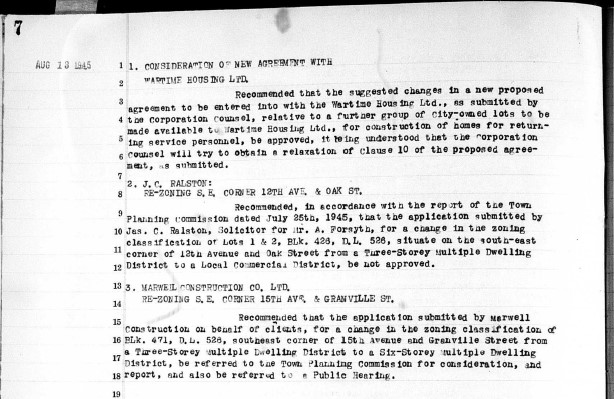
About a decade ago, the Archives digitized the minutes from the 1970s as a grant-funded pilot project to test textual records scanning workflows. We continued this work on the latter half of the 1960s as time and resources permitted, but in 2023 purchased a book scanner to improve this work. We are thrilled to now be able to dedicate a day or two a week to digitizing Council minutes, and this will result in more minutes becoming available for download from our database on a regular basis. The digitization process involves scanning minute book pages, processing the files using optical character recognition (OCR) technology to make each page keyword searchable, reviewing for quality control, running the master files through our preservation system, and uploading the access copies to our database.
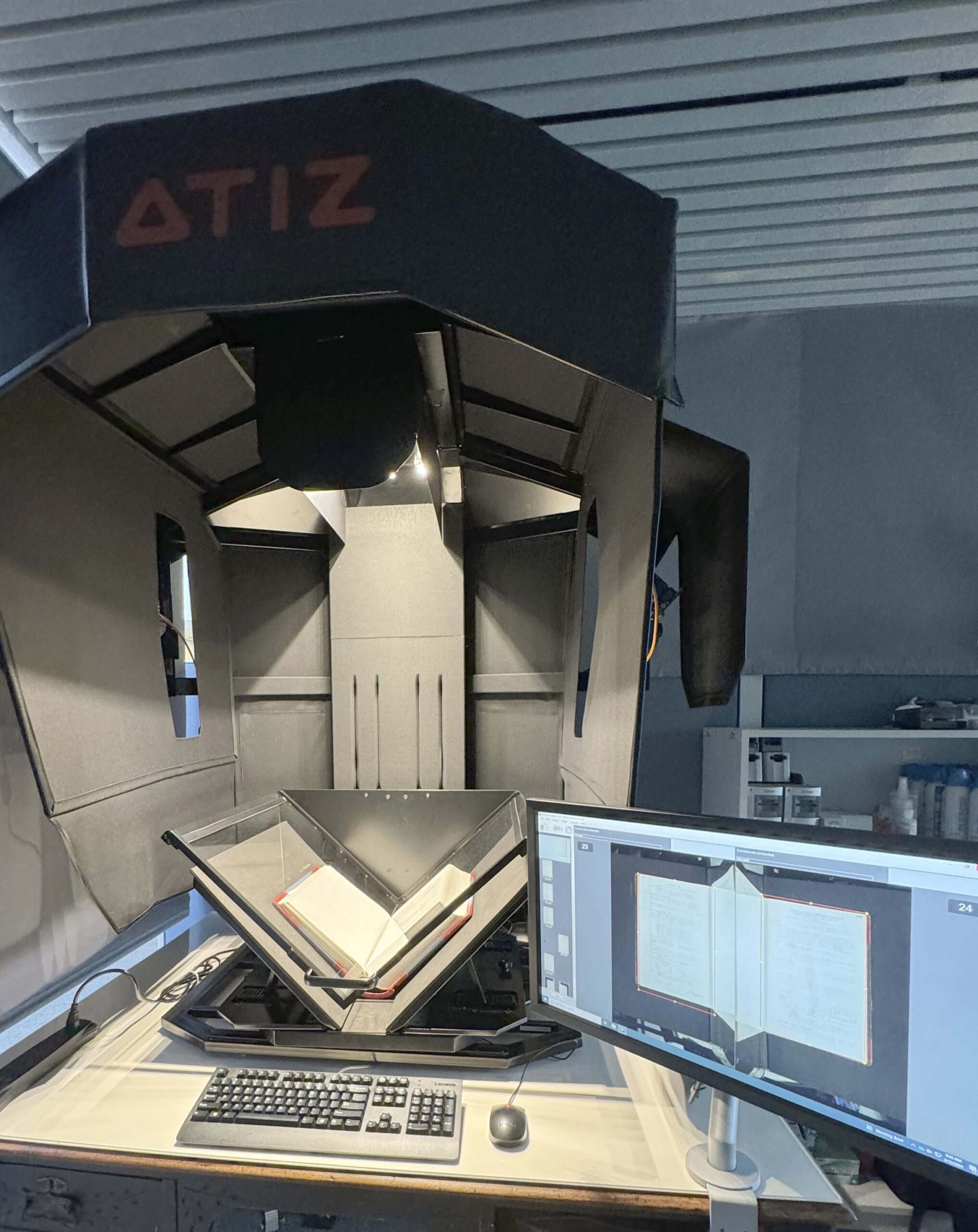
Another component of this work is first having each meeting, with its corresponding list of agenda items, given a file-level description in our online database. When these minutes were first described decades ago, only each bound minute book was given a database description. These minute books contain multiple meetings and can span a whole year, or, in some cases, only a month. In order to upload a set of scanned PDF meeting minutes (and all of the searchable agenda information associated with each meeting) we needed new file-level descriptions in our database, one for each meeting in a minute book. In 2023, we added 327 file-level meeting descriptions for the years 1959 to 1964 and in 2024 added 1,251 descriptions for 1980 to 1995 to prepare for forthcoming digitization.
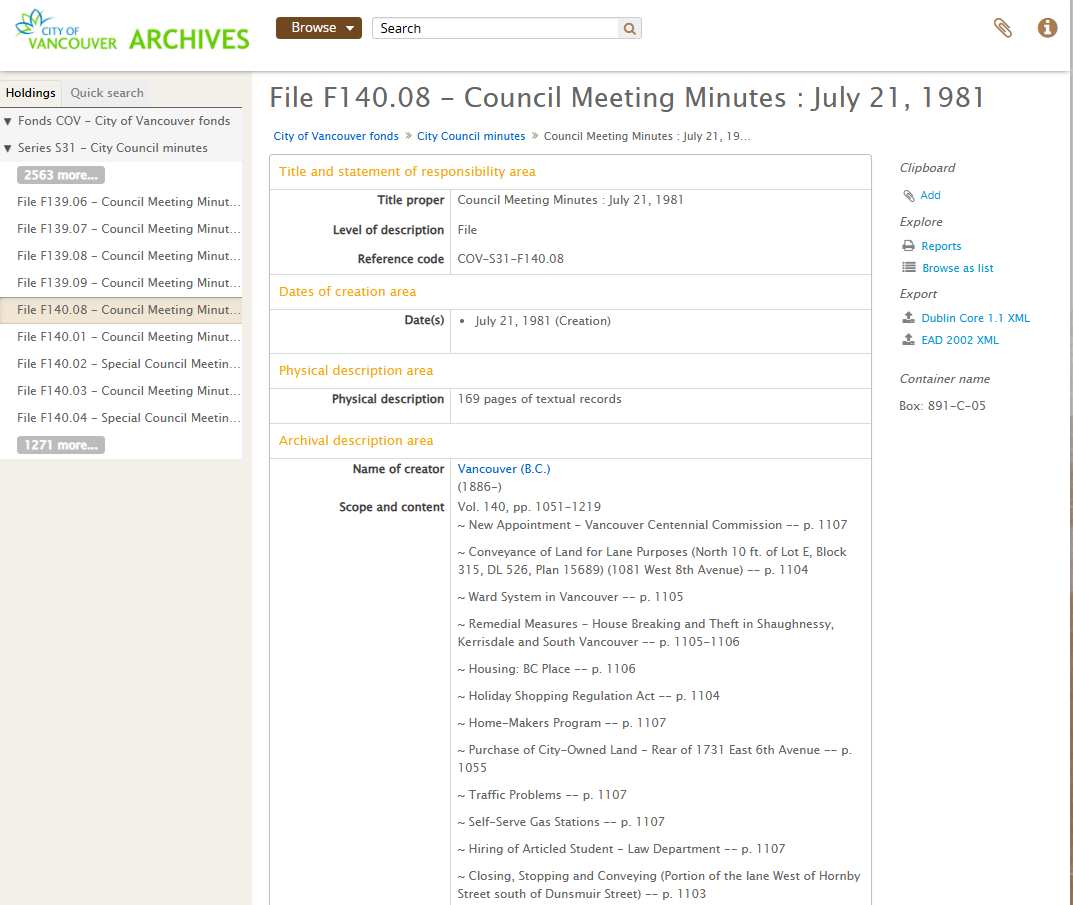
Not Sure Where to Start? Council Indexes are the Answer
1886-1949 – Archives’ microfilm only
1950-1957 – Archives’ index spreadsheet (alphabetical/subject)
1958-2009 – Archives’ index spreadsheet (chronological/agenda item)
Indexes help identify when a particular matter was discussed by Council. This is useful since the minutes are arranged by the meeting date. So, whether you don’t know at all when an issue came before Council or if you’re trying to track an issue over time, indexes allow researchers to cross reference their topic with specific meetings.
The indexes the Archives holds (COV-S32) are bound index record books created by City Clerk’s Office staff, each corresponding to a bound minute book volume. Indexes were organized alphabetically and by subject. For example, A-B, C-D, E-F etc., as well as sections for By-Laws, Demolitions, Housing and the like. The indexes, like the Council minutes, were microfilmed years ago for researcher access in our Reading Room.
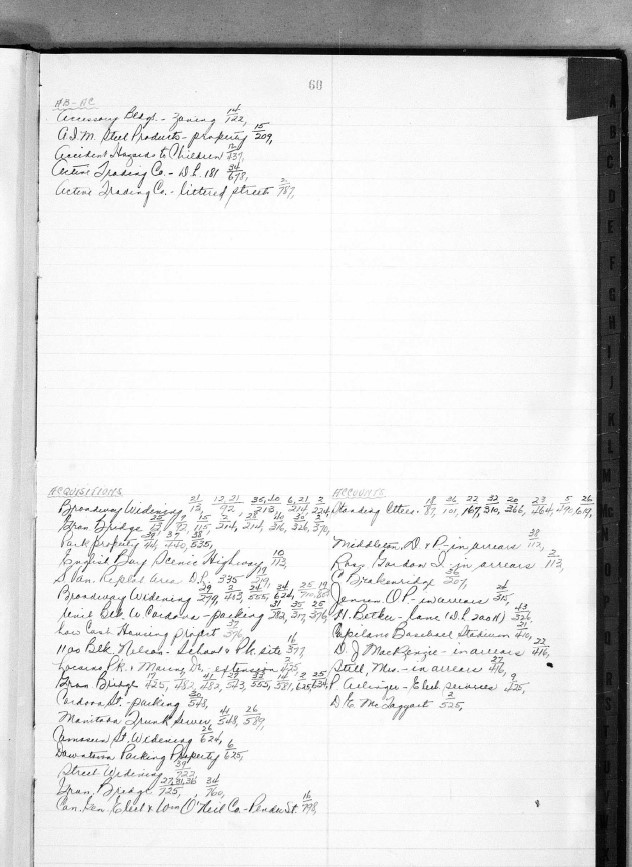
We also have an electronic version of index data, an Excel spreadsheet, that covers the years 1950 to 2009. This spreadsheet is now online and can be downloaded directly from the series level description, using this link in the note field, Finding aids.
When the spreadsheet was first created, as part of a partnership between the Archives and City Clerk’s Office in the early 2000s, the years indexed only spanned 1958 to 2009. The index entries are transcriptions of agenda items and are listed chronologically by meeting, rather than alphabetically or by subject, as in the contemporaneous indexes. For instance, in the screenshot below, the “Arbutus/Vine industrial area CD-1 guidelines” item is followed by the “Low-income housing in the downtown, 1994 survey” item because they were part of the same meeting. The Date column represents the meeting date and the Page column directs you to the minute book volume and page number of the item and supporting reports. It is this detailed information in the spreadsheet that has been imported into the new file level descriptions mentioned above, making that data accessible from both the online spreadsheet and our online database.
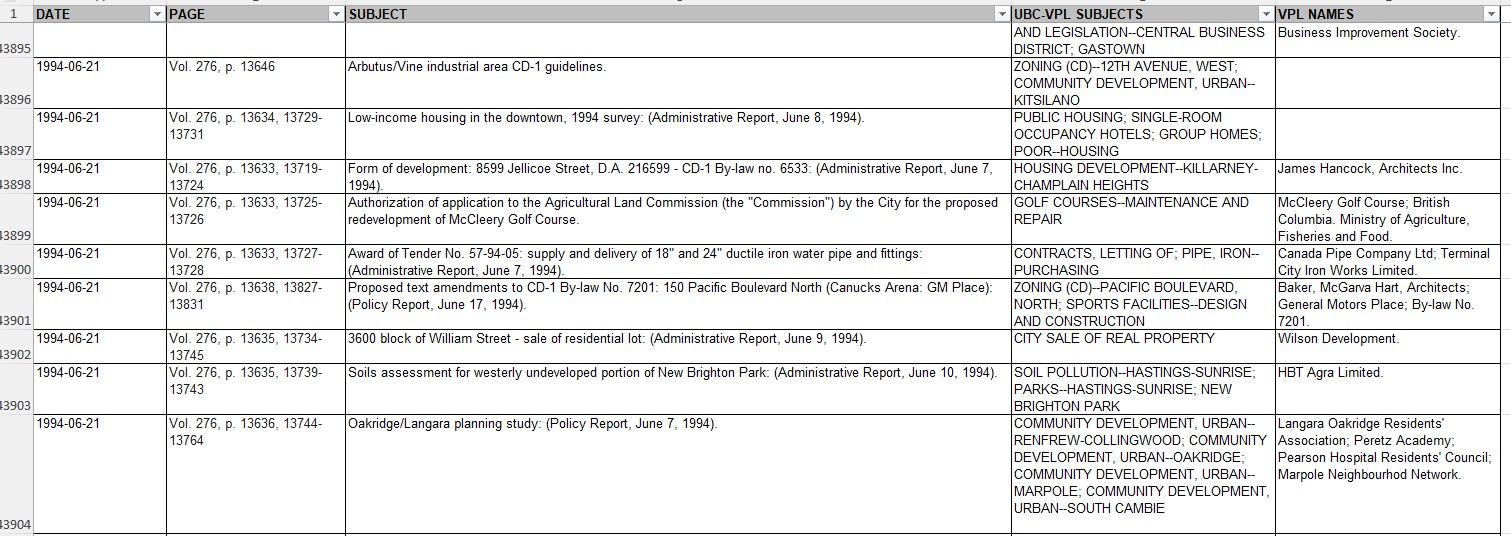
In 2024 Archives staff began a major project to transcribe the pre-1958 handwritten indexes from microfilm to add to the spreadsheet. Our Archival Assistants, with some part-time help from a colleague in the CCO’s Access to Information unit, transcribed almost an entire decade (back to 1950) of the alphabetical/subject index record books, now making these indexes searchable electronically. We hope to add another decade soon!
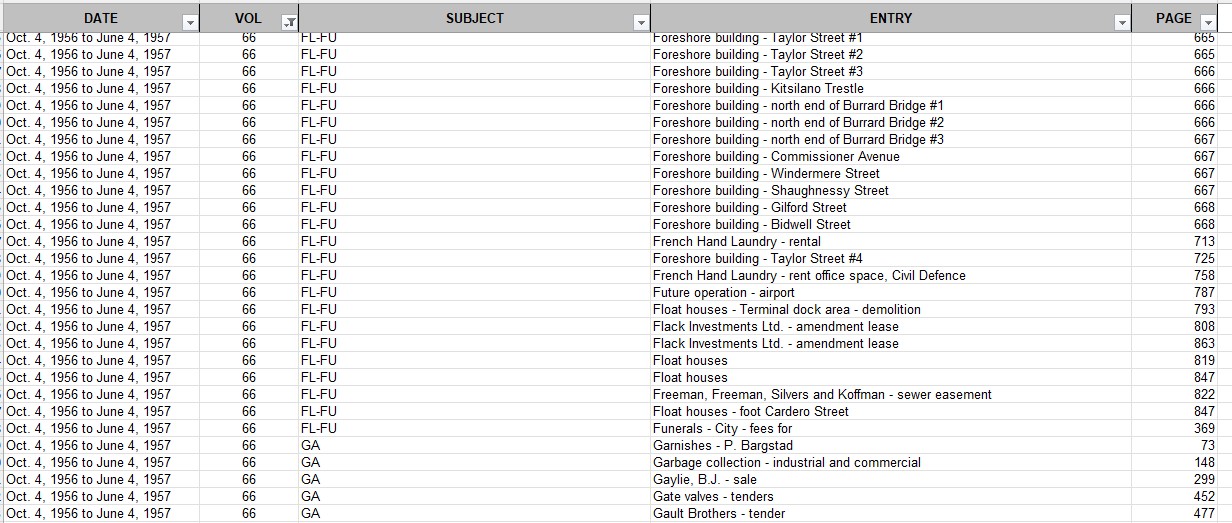
Wait…What About In-camera Minutes?
In-camera (closed to the public) meeting minutes (COV-S35) are also regularly transferred to the Archives, but are restricted under the provincial Freedom of Information and Protection of Privacy Act for a minimum period of 15 years. Beyond that, records may have information still subject to a longer restriction, or even a closure period, such as personal information or legal advice.
That said, there are in-camera minutes that have out-lived all their restriction periods and are freely available for research. Speak to an archivist if you’re interested in accessing this material. For more current In-Camera meeting information (2011 onward), minutes are regularly reviewed by Access to Information staff and some material is released online on the City’s website.
Contact the Archives for further help using Council minutes for your research. Also, keep your eyes peeled for a future post about our current work to digitize this important series.
